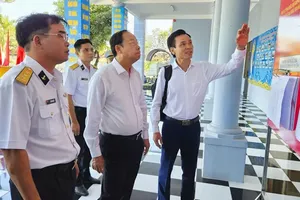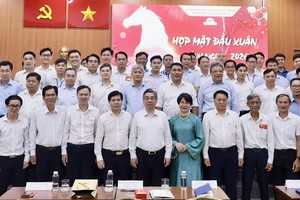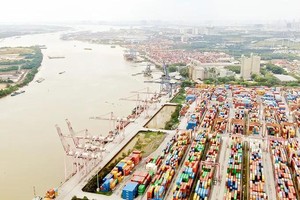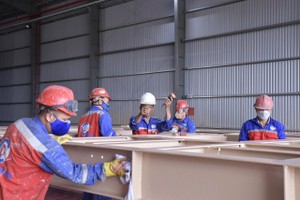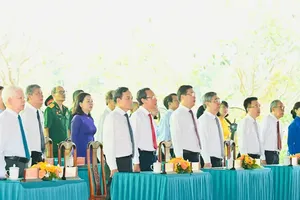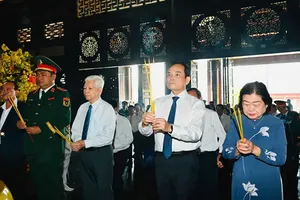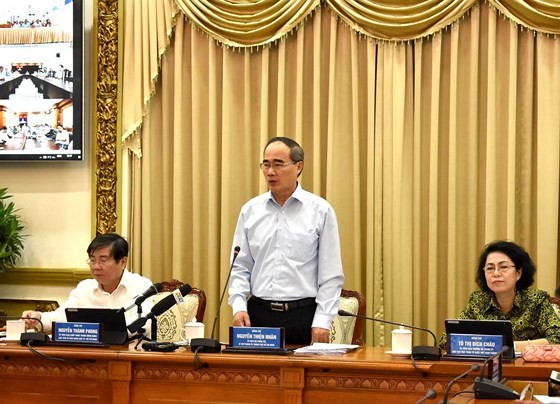
Speaking at a conference held by the city People’s Committee on administrative reform, Mr. Nhan emphasized that each district and agency must take action to create remarkable change in administrative reform.
Despite the low level residential satisfaction in the three fields, the average level of residantial satisfation in administrative reform of the city reached 82 percent, he added.
According to him, the city government of all levels together with agencies have implemented the breakthrough program in administrative reform and achieved some remarkable results. Agency leaders have really paid attention to carrying out the mission.
Administrative reform breakthrough will be obtainable if leaders of agencies and each of their cadres join hands, he emphasized.
HCMC has launched paperless meeting model and issued coordination regulations to solve administrative procedures with specific time limit for the first time.
The city’s Party Chief expressed displeasure with the city’s low Provincial Competitiveness Index (PCI) in 2018 dropping two grades compared to the previous year to rank 10th out of 63 provinces and cities. The city ranked 19th in 63 provinces and cities in information technology application especially electronic public services.
Especially, the index estimating administrative reform impact to residents and organizations’ satisfaction in socioeconomic development ranked 60th out of 63 provinces and cities.
“HCMC has paid attention to implementing administrative reform and gained much result but it is still underestimated,” Mr. Nhan said and noted that the city must analyze limitations to have solutions.
In the end months of this year, he suggested improving the ratio of public service use and broadening applications recording residents’ opinions in all districts.
Chairman of the city People’s Committee Nguyen Thanh Phong, head of the Steering Board on Administrative Reform, also displeased with the number of 31,900 documents lately solved accounting for 0.31 percent mostly in land field. The ratio of people unsatisfying with administrative procedure solving neared 18 percent, mostly in the land field. Some procedures have been handled very slowly displeasing residents.
Therefore he required the Department of Natural Resources and Environment to strive to reduce the ratio of late documents to below 0.1 percent.
Leaders of some agencies and districts have not closely steered administrative reform and been in psychological fear of responsibility. In some places, administrative reform is not in fact without appropriate models.
Mr. Phong required agencies and districts to continue implementing defined solutions synchronously and drastically to meet administrative reform breakthrough requirements and increase residents’ satisfaction. They should closely follow and efficiently carry out projects materializing the National Assembly’s Resolution 54.
The city People’s Committee Office must broaden implementation of the model to record residents’ satisfaction in administrative reform, paperless meeting model and smart work assignment and reminder application.
He required the Department of Internal Affairs to organize inspection over responsibility of agency and district leaders and over serving attitude of public servants to propose strict handling measures to harassment by civil servants on duty.
The chairman hoped that press agencies will provide information about administrative reform in a timely manner, reporting both good and not good sides for the city leaders to rectify problems.

